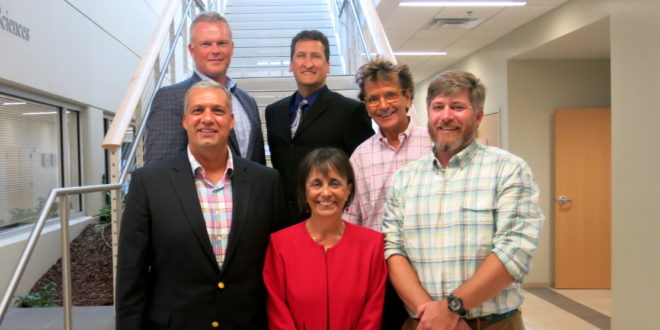A leading-edge effort by the School of Applied Health Sciences to boost the number of mental health and substance abuse paraprofessionals in the region is off to a strong start, with projections for nearly 60 people to complete free Enhanced Certified Recovery Peer Specialist training this year.
The program, the first of its kind in Florida, partners the Brooks Rehabilitation College of Healthcare Sciences’ Mental Health Counseling program with LSF Health Systems using a $141,000 grant from the U.S. Department of Health and Human Services to provide students and community members the free JU coursework.
Northeast Florida currently has a great shortage of Certified Peer Specialists, who use their training and professional preparation together with their own lived experience to help others recover from substance abuse or mental health problems.
“This training program will be rigorously evaluated for its effectiveness and sustainability, and those results will be shared with the community,” said Dr. Sharon Wilburn, Program Director for the JU Clinical Mental Health Counseling Program in the School of Applied Health Sciences. “We are confident that this training program will fill a vital gap in the behavioral and mental health systems in our region.”
LSF Health Systems, the Managing Entity contracted by the Florida Department of Children and Families to provide these mental health services in Northeast and North Central Florida, has documented waiting lists as long as several months for patients, resulting in a rising number of mental health crises.
The CRPS designation demonstrates competency in the field of peer-to-peer recovery support, enhances students’ marketability, and introduces paraprofessionals to a recovery-oriented and multicultural perspective on behavioral health care.
In this new program, the focus will be on training paraprofessionals with the skills and competencies to work with children, adolescents and transitional-age youth at risk of mental illness, substance abuse or suicide. Students commit to a specific field and job placement working with the targeted youth population.
The training includes the educational requirement for state certification as a recovery peer specialist as well as trauma informed care, mental health first aid, multicultural competency and the One Love Foundation escalation workshop on relationship abuse prevention.
Currently, 21 students are enrolled in the first class, with a total of 83 people having expressed interest in participating in the program. It is anticipated that by the end of the one-year grant period, a minimum of 60 people will be trained as Recovery Peer Specialists, and following the required hours of experience will be eligible to take the state exam to be a Certified Recovery Peer Specialist.
“Certified Peer Specialists are key members of a recovery-oriented, interdisciplinary treatment team,” LSF Health Systems CEO Dr. Christine Cauffield said. “Their experiences offer hope and connection to those who struggle with behavioral health disorders.”
For more information, contact Dr. Wilburn at (904) 256-8930 or email swilbur@ju.edu. Interested students may also contact LSF at (904) 674-3553 or peer.network@lsfnet.org.
 Wave Magazine Online Jacksonville University News Hub
Wave Magazine Online Jacksonville University News Hub
